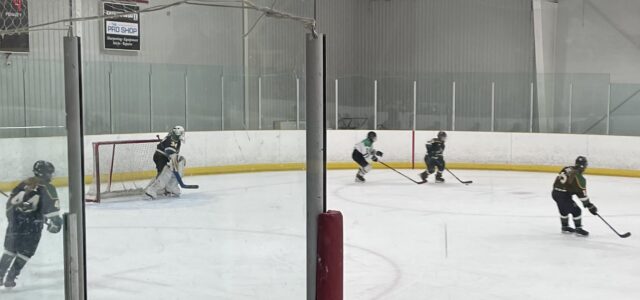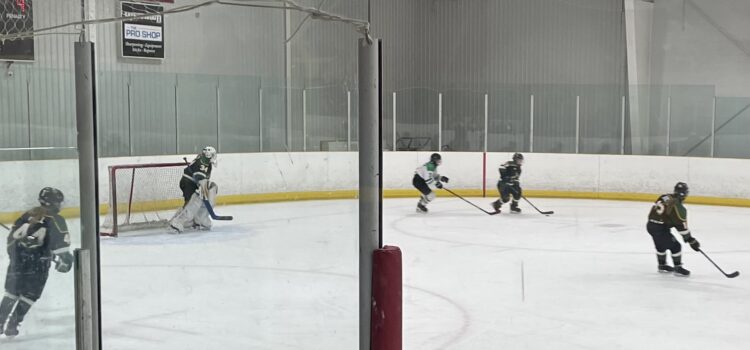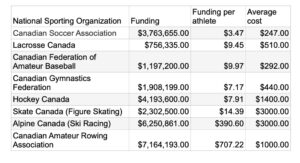


In Canada, the cost of participating in youth sports is on the rise, leaving many parents unable to register their kids, but federal government spending continues to prioritize the most expensive sports, despite lower participation.
During a time when Canadians are seeing rising costs from school supplies to groceries, the lack of support for some popular sports leaves many unable to pursue the opportunities and benefits available.
An analysis by Skedline suggests funding from the federal government favours sports with a high bar for entry. Most sports in Canada have a National Sporting Organization, funded through the Minister of Sport and Physical Activity through Sport Canada. NSOs are responsible for infrastructure, training, development, and national oversight. When dividing the total spent on NSOs by their registered participants the difference spent per player can be hundreds of dollars. The recipients of the most money have sports with the highest cost to participate.
For example, figure skating is given twice the funding per athlete as opposed to gymnastics. Alpine ski racing and rowing are two of the highest-funded sports despite their very low registration numbers.
According to a recent study conducted by MLSE Research, cost has become the number one barrier to access to sports. While youth sport participation has bounced back, it remains under pre-pandemic levels. According to a recent Jumpstart survey 44% of parents cannot afford the registration and 81% of organizations have faced rising operational costs.
This has left other government programs to pick up the slack. Parents of young athletes with autism or other disabilities have become reliant on programs like those offered through Autism Ontario to afford the fees.
Veteran Lacrosse player turned volunteer Greyden Power has seen how the lack of support has harmed the sport through the years. “From playing many years of lacrosse I have seen a ton of guys quit the game because the price is too high,” Power says. “A sport like lacrosse requires you to travel to a ton of small towns for games and tournaments, and with the prices of gas being so high, many families can’t afford it. Over the past 10 years, the amount of junior lacrosse teams has diminished substantially, which makes it even pricier for players who do want to play because they often find themselves needing to travel to play in other towns when their team has to fold due to lack of players.”
In some cases like hockey or football, some relief is gained through the infrastructure and funding provided through professional leagues. But when funding is not available, private institutions can dominate the space.
In 2022, the majority of those who started lacrosse in Canada, and went on to play at the top US institutions, had attended one of four Canadian private schools, like The Hill Academy or St. Micheal’s College.
The ACC, IVY, and BiG10 NCAA conferences are home to the most prestigious schools that participate in Lacrosse. According to the list of Divison 1 Canadian Lacrosse players published by Lax Across America, 84% of Canadian players at those schools played for elite private schools in Canada or the United States in 2022.
As this kind of exclusive access limits opportunities for many, it can also have negative outcomes on the health of young people. According to Health Canada, obesity among young people has tripled in the last 30 years. Jumpstart research shows 40% of parents have seen adverse health effects on their kids since the COVID-19 pandemic ended.
Canada’s National Sports Organizations are currently appealing for more funding from the federal government. As of right now the allocation of any future funds is unknown.







